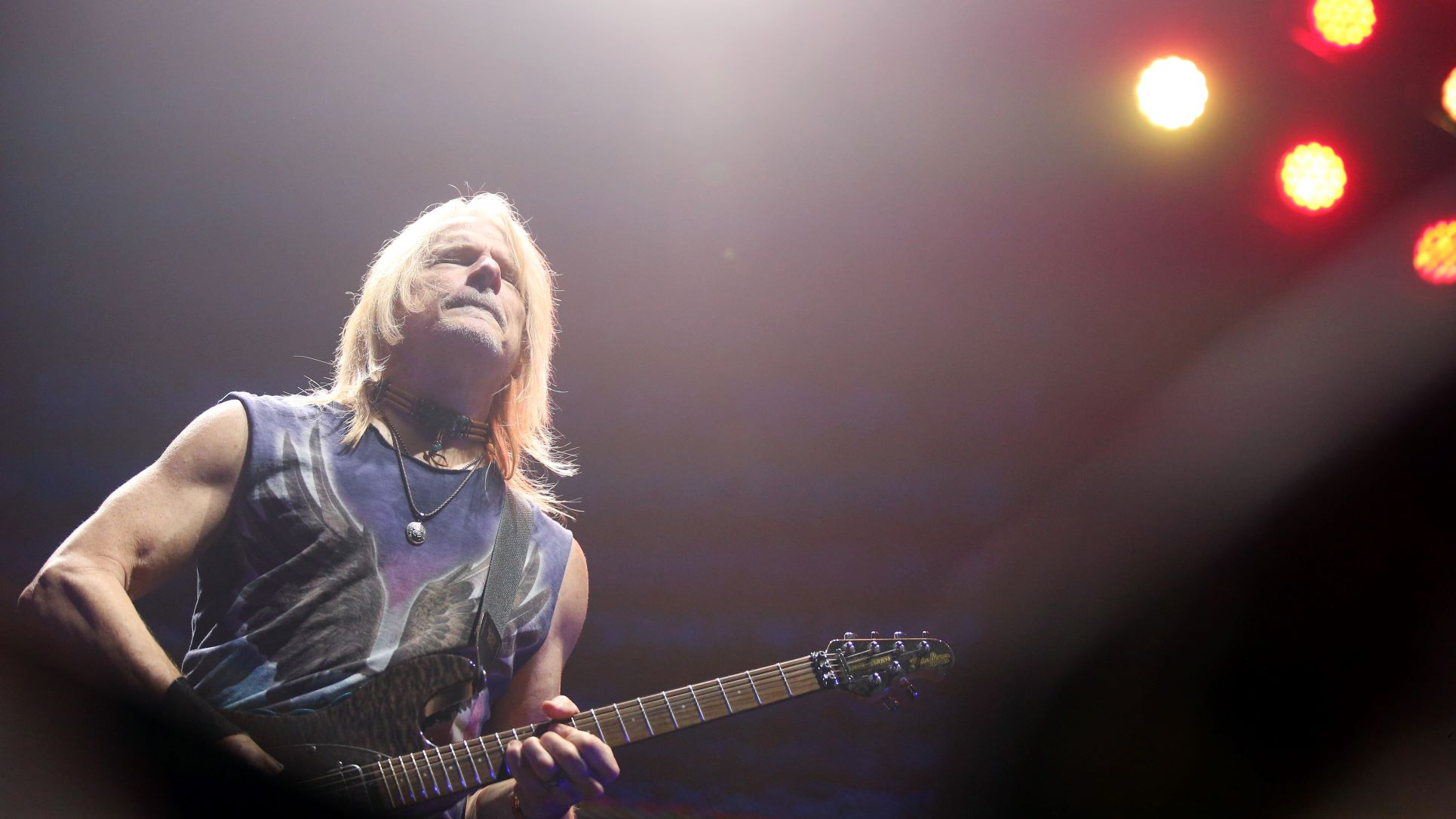Steve Morse Reveals His Writing Secrets
The Deep Purple shredder talks crafting guitar instrumentals.

All the latest guitar news, interviews, lessons, reviews, deals and more, direct to your inbox!
You are now subscribed
Your newsletter sign-up was successful
Steve Morse has defined himself as one of music’s most versatile shredders, not only through his work with Deep Purple but also with the Dixie Dregs and the Steve Morse Band, where he’s demonstrated his talent for crafting inspiring instrumental fusion and rock guitar songs. What does it take to write a successful guitar instrumental? We asked, and he answered.
What is it about guitar instrumentals that appeals to you?
The main thing is that the guitar can control the mood and energy. It’s totally a composed creation mixed with some improvised soloing. Vocals are very expressive, and the electric guitar can be too when you use a wide range of attack, tone, vibrato, bends and so on.
What can an instrumental provide a listener that a vocal song can’t?
Less repetition, for one thing. In songs, the music often stays the same for three rounds of verses. Instrumentals work better when there’s always something changing, or when you add more parts to them.
How do you start writing one?
I use a combination of experimentation, inspiration and transcribing what’s in my head.
All the latest guitar news, interviews, lessons, reviews, deals and more, direct to your inbox!

Do you try to retain a typical song structure?
Usually not. I tend to revisit the melody with some changes at the end. That said, the typical song format can work fine if you include some changes on each verse.
When it comes to writing guitar melodies, is it useful to study a vocalist’s approach?
I think it’s good to study horn melodies and vocal melodies. Vocalists tend to use many different techniques, and guitarists can always learn from trying to sing a melody.
How do you keep a solo performance interesting over a long stretch?
I use a variety of tones or attack, changing from a mono to a more polyphonic approach, or changing the density of the notes in different sections. I’ll change effects for different parts, too.
Do you ever adopt the approach of “start low and slow, and finish high and fast”?
I wouldn’t say that’s a feature that I always use. However, I have often used the approach of adding more and more melodies as overdubs to the ending section to make the sound more dense.
Do you have any favorite keys or tempos?
Keys? Any that might allow some open strings to be used in voicings of chords. Tempos? No favorites, but sometimes I limit the tempo if it is very technical, of course.
Do you find it easier to write in minor or major keys?
I change to the relative major or minor so much within a song that it doesn’t make much difference. Some of my more metal friends hate that I often use major-key melodies and chords. They sound “too happy.” If anything I play makes somebody happy, I’m fine with that! But seriously, I use major too much to ever be embraced as a legit hard-rock guitarist.
Any favorite modes?
Mixolydian and Dorian seem to come up a lot in my stuff!
The bass often doubles lines or takes over my original riff while I add a melody or harmony.
Steve Morse
What about modulations into new keys?
I always try to do it, because it seems to freshen everything up sonically. It can be very corny, though, if it’s done as a huge deal and uses a big Broadway-style turnaround.
Does the backing band have to work differently than it would on a vocal song?
Yes. For example, the bass often doubles lines or takes over my original riff while I add a melody or harmony.
What are your thoughts on harmonizing?
Don’t just stay with diatonic harmony that follows the exact contour of the melody. Let it take some jumps to 6ths, 5ths, 4ths, as well as the usual 3rds.
What guitar instrumentals have inspired you?
Eric Johnson’s “Cliffs of Dover” and Joe Satriani’s “Satch Boogie” come to mind. My earlier influences were the Allman Brothers’ “Jessica,” Jeff Beck’s “Ain’t Superstitious” and the Ventures’ “Walk Don’t Run.”
Guitar Player is the world’s most comprehensive, trusted and insightful guitar publication for passionate guitarists and active musicians of all ages. Guitar Player magazine is published 13 times a year in print and digital formats. The magazine was established in 1967 and is the world's oldest guitar magazine. When "Guitar Player Staff" is credited as the author, it's usually because more than one author on the team has created the story.
